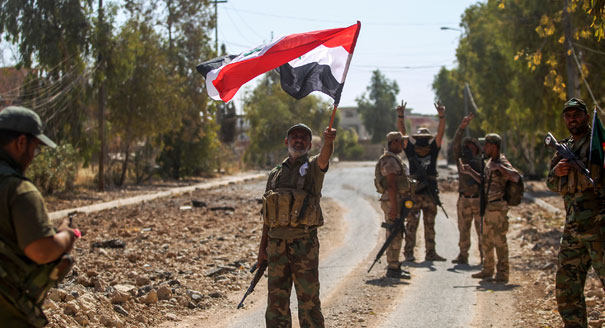Registration
You will receive an email confirming your registration.
Iraq’s three-year battle against the so-called Islamic State (IS) empowered an array of armed actors that enjoy state legitimacy yet operate autonomously from state security forces. As the country’s focus on security decreases, these paramilitary groups — the so-called “Popular Mobilization Units" (PMU), also known as Hashd — are moving into politics and economic activities.
Despite enjoying broad legitimacy for their role in fighting IS, the Popular Mobilization Units challenge the state’s cohesion and monopoly on legitimate violence. Without a plan to integrate them into formal state institutions, they could undermine efforts to build a functioning state and prolong Iraq’s four decades of instability.
CMEC organized the launch of the International Crisis Group’s report, which proposes that Iraq’s next government should address the challenge that the PMU and many armed groups represent by separating security actors from politics and economic activity, providing a short-term role in reconstruction, and strengthening security ministries to render them less dependent on semi-autonomous armed groups.
Renad Mansour
Renad Mansour is a research fellow for the Middle East and North Africa at the Chatham House.
Heiko Wimmen
Heiko Wimmen is the project director of Iraq, Syria, and Lebanon at the International Crisis Group.
Yezid Sayigh
Yezid Sayigh is a senior associate at the Carnegie Middle East Center.
MODERATOR:
Liz Sly
Liz Sly is the Washington Post’s Beirut bureau chief covering Syria, Lebanon, and the wider Middle East.
